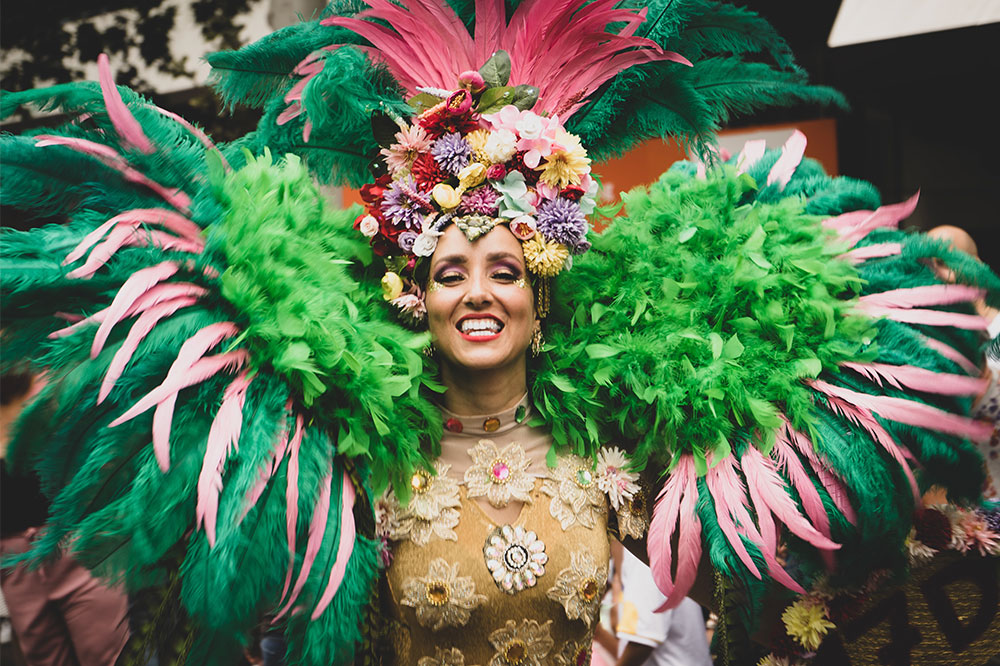What is Mardi Gras and How is it Celebrated?
Mardi Gras is a yearly festive day celebrated on Fat Tuesday before Ash Wednesday. It marks the beginning of the religious season of Lent. It is also known as Carnaval or Carnival and is celebrated in many countries. On the festive day, people binge on rich, fatty foods in the house right before the season of fasting and abstinence.

What is Mardi Gras?
Mardi Gras is a Christian celebration that acts as a prelude to the start of Lent. It is an opportunity for everyone to rejoice and indulge before fasting for 40 days (from Ash Wednesday to Easter Sunday). The celebration can be dated back thousands of years, all the way to Pagan celebrations of fertility and spring. It was introduced into Christianity to incorporate popular local traditions into the new culture.
What does Mardi Gras mean?
In French, Mardi means “Tuesday,” and Gras means “fat.” Traditionally, in the days leading up to Lent, locals would feast on all the fattening foods available. It helped them clear the house of foods that might otherwise go to waste during the fasting season.
The country witnesses one of the biggest Mardi Gras celebrations in New Orleans. The first Mardi Gras celebration in the country was held way back in 1699. Following that, New Orleans, along with other regions with french settlements, began celebrating Mardi Gras with lavish meals, masked balls, and street parades. After a few years of a ban by the Spanish invaders, New Orleans conducted its first Mardi Gras celebration around 1837. This was soon followed by a secret society of businessmen coming together and leading a torch-lit parade with rolling floats and bands. It set the tone for the upcoming Mardi Gras celebrations in New Orleans, which is now known across the globe for its raucous and loud presence.
Now that the history of this festival is known, it’s time to move on to the important elements of the present-day celebrations. The Mardi Gras Carvinal is almost a month-long event that comes with its own set of traditions and rules.
Mardi Gras Krewes
The secret society of businessmen that organized the first full-fledged procession for the Mardi Gras celebration was named the Mistick Krewe of Comus. Today, Krewe is used to denote an organization that works all year to put together parades and balls for the celebration. People cannot easily join the Krewe since a significant population still belongs to secret societies.
Today there are numerous Krewes that commonly have a celebrity or a known face leading the parade float as the king or queen. Aside from the parades, there are also some Krewes that organize marching parades. The Society of Saint Anne is one of the well-known marching Krewes that has walked the streets of the French Quarter and Marigny since 1969.
Mardi Gras Balls
Each of the Krewes involved in the Mardi Gras celebration gets to organize a ball during the carnival. When the tradition started in the 1800s, these balls were extremely private events, however, modern-day Mardi Gras balls are ticketed or invitation-only events.
Mardi Gras Outfits & Costumes
People riding the parade float are required to wear a mask when they are participating in the parade. Traditionally, the mask signified the fight against societal and class differentiation. People often make the most of this occasion by donning elaborate masks, wigs, and costumes to enhance the celebration. The event also has competitions for best costumes and the like for people to share their enjoyment.
Mardi Gras Beads and Throws
Mardi Gras Beads are a huge part of the traditional celebrations. Rex and other Krewes started distributing small trinkets to the parade followers. Originally, the iconic Mardi Gras beads were made of glass, and at times, people get lucky when Krewe decides to throw these vintage beads during the parade. Currently, Krewes prefer throwing MoonPies, cups, and doubloons. Some prized elements occasionally spotted at the carnivals include bedazzled purses, glittery shoes, and sparkling coconuts.
Mardi Gras Decorations
The Krewe of Rex is the group responsible for the official colors of Mardi Gras. The epicenter of the celebrations is made up of parade floats and flambeaux. The floats are large and decorated with papier mache figurines, hand-painted ornate flowers, and LED lights. Some Krewes even have a signature float head reused every carnival season, and it is a tell-tale sign of the marching Krewe. As per tradition, flambeaux continue to carry torches and light the way for night parades on Fat Tuesday.
King Cake
The cake is a doughy pastry consisting of an intricate mix of cinnamon roll and coffee cake stuffed with fruits and other flavorings. It is a traditional treat of the season and is said to bring luck all around the year to the person that finds a plastic baby in their slice. This individual is also responsible for baking the King Cake for the next party.
Another great place to celebrate Mardi Gras is the Universal studio in Orlando. The studios have their own sets of parades and celebrations in combination with food stalls covering some of Fat Tuesday’s delicious traditional dishes.











